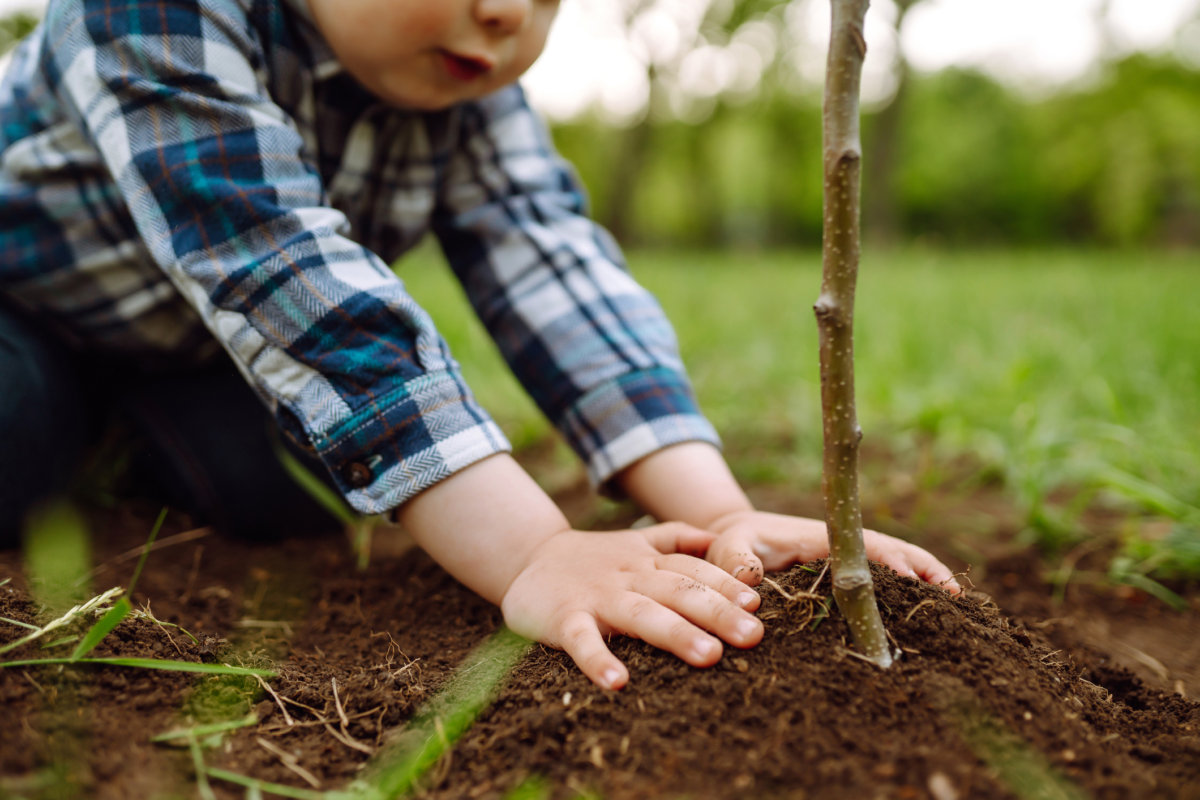
Plant a tree for Earth Day. There are numerous ways that trees help the planet and benefit our lives.
Earth Day is April 22. Since 1970 this day has become an annual reminder that we should be good stewards of the earth.
There are many ways we can help keep the earth healthy. Plant a garden and keep it green. Reduce or eliminate the use of chemicals such as pesticides. Buy products that are earth-friendly, such as organic produce and pasture-raised meat and eggs. Buy less stuff, and reuse or recycle what we can. Drive our car less. And the list goes on.
One of the best things we can do for the planet is to plant a tree. There are numerous ways that trees help the planet and benefit our lives.
Trees store CO2.
This decreases the concentration of CO2 in the atmosphere. An average-size tree can store hundreds of pounds of CO2 over its lifetime.
Trees improve air quality.
Trees use CO2 during photosynthesis. In the process, they emit oxygen. And they clean the air by trapping dust, pollen and other pollutants on their leaves and bark.
Trees and other plants reduce energy use.
Your house will be cooler if a tree shades it from the afternoon sun. You are less likely to use air conditioning. And trees help block winter winds, reducing your house’s heating needs. Trees properly placed around buildings can reduce air conditioning needs by 30 percent and can save 20–50 percent in energy used for heating. By reducing energy demand, trees and plants decrease air pollution and greenhouse gas pollutants.
Trees increase property value.
A home with a mature landscape that includes trees has more street appeal. Landscaping, especially with trees, can increase property values as much as 20 percent. Having large trees in yards along streets increases a home’s value from 3 percent to 15 percent.
Trees make people feel good.
“A growing body of research shows that regularly spending time around trees provides a wide range of human health benefits, from lowering stress to improving cognition to boosting longevity, according to experts,” according to Harvard T.H. Chan School of Public Health. Workers are more productive when they see trees along their commute routes and from their office windows. People in hospitals heal faster and need less pain medication when they can see trees from their window.
Trees provide shelter and food for wildlife.
Trees benefit wildlife such as birds, squirrels and beneficial insects. Want to see more butterflies, birds and other creatures in your yard? Plant a tree!
Trees reduce runoff and improve water quality.
They absorb and filter rainwater. Their leaf canopies help reduce erosion caused by falling rain. They also provide surface area where rain water lands and evaporates. Roots take up water and help create conditions in the soil that promote infiltration.
Need help choosing a tree?
Here are a few resources. Your local independent nursery can help you choose the right tree for your yard.
- How to choose the best tree for your yard and some of the best small trees, Seattle Times.
- Tree selection, Trees for Seattle.
- Urban sturdy trees, Great Plant Picks.
- Best trees for Seattle: practical tips, Association of Professional Landscape Designers.
- Ten trees and shrubs for a small, city garden, Swansons Nursery.
- Tree selection guide, Portland Nursery.
You are welcome to contact us if you are thinking about changing your landscape to incorporate more trees. Our landscape designers and installers can help you create a landscape that will look great as your trees grow and mature.
More about trees
Read more about the many benefits of trees.
